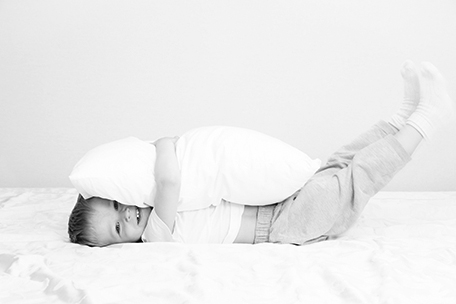Are you getting enough sleep?
According to a BBC documentary, UK is one of the most sleep deprived nations in the world. Over time the amount of sleep we get on average has been declining. These days many don’t get the recommended 7-8 hours per night.
Lack of sleep is linked to obesity and diabetes
Being sleep deprived makes you tired, of course, but research shows that the effects are much wider spread than that. Lack of sleep has serious implications on health and a strong link has been shown between lack of sleep, obesity and type 2 diabetes. Studies show that 50% of people who get fewer than 5 hours sleep per night are obese. Those in turn are at higher risk of developing diabetes.
Sleep affects the hormonal balance
The science behind this connection has to do with hormones. Certain hormones affect how we perceive appetite. When we don’t get enough sleep, the hormones that make us feel hungry are increased. Similarly, the hormones that make us feel full are reduced.
Being awake when you’re not meant to is also stressful and that increases the stress hormone, cortisol, in the body. Cortisol can affect appetite as well. So one night of poor sleep is a triple whammy to your hormone balance, in other words.
Restricted sleep raises blood glucose
A small experiment in the BBC documentary demonstrated a link between restricted sleep and blood glucose levels. Glucose in the blood is the indicator of diabetes. If your glucose levels are heightened, you’re at higher risk of developing diabetes and if the levels are above a threshold level, you’re classed as diabetic. In the experiment, 6 healthy people had 2 nights of normal sleep, 2 nights of restricted sleep and 2 nights of recovery sleep. Their blood glucose levels were monitored throughout.
All 6 participants demonstrated higher glucose levels after a short night’s sleep, even before eating anything. All six also reported feeling more hungry and craving sugary, carby foods.
Why do we feel more hungry when our blood sugar is higher?
All 6 test participants said they were hungrier after the restricted sleep. Their test results showed that this was also when their blood sugar levels were the highest. So why do we feel more hungry when our blood sugar is already high? This counter intuitive result happens because our appetite is not directly linked with blood sugar levels. What makes you feel hungry is the hormonal imbalance caused by lack of sleep, not low or high blood sugar level.
Gut bacteria work harder after a poor night’s sleep
The link between obesity and sleep is partly also explained by the effects of sleep deprivation on our gut bacteria. The microbiom, or bacteria in our gut that helps us maintain normal metabolism and immune system, is closely linked to how much energy we uptake from the food we eat.
You might think that if you’re sleep deprived, the gut bacteria won’t work as well as they otherwise do but the opposite is true. When sleep deprived, we seem to extract more energy from the same amount of food. This might have been a handy characteristic in the times when our ancestors lived in the jungle and access to food was scarce but in modern times of abundance it’s causing serious health problems.
Aim for 7 hours a night
The experts say that if you’re regularly getting fewer than 7 hours of sleep per night, you’re at significant risk of putting on weight, having higher blood sugar and even developing diabetes. There’s an eye opener about the importance of good shut-eye – and not one you can fix with a strong cup of coffee in the morning.

